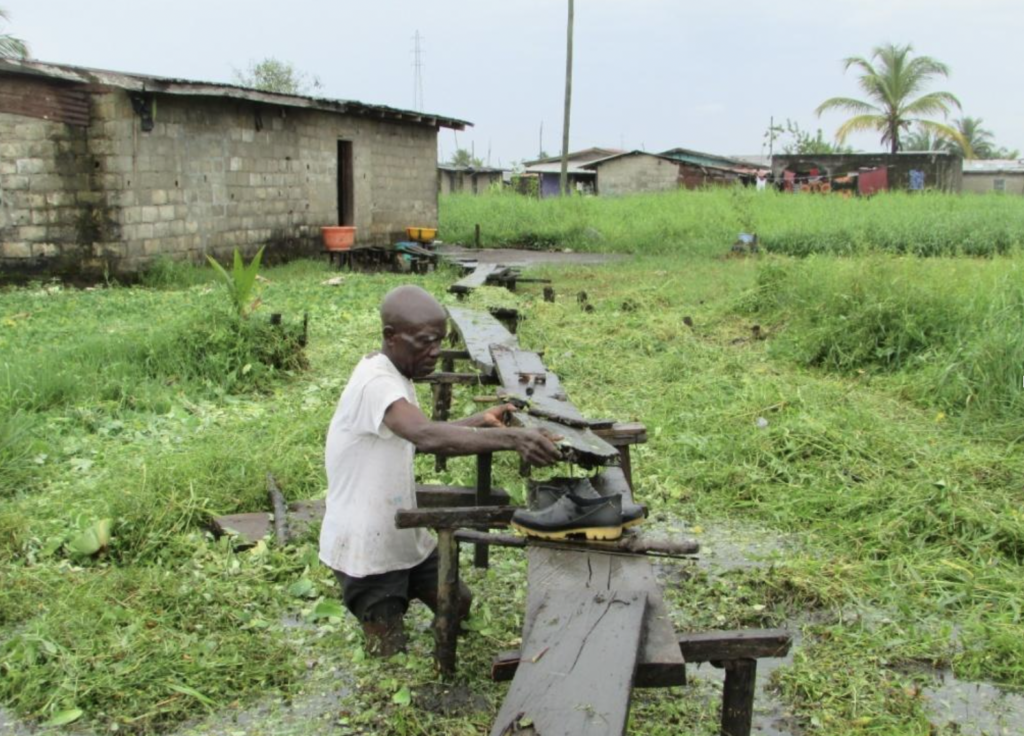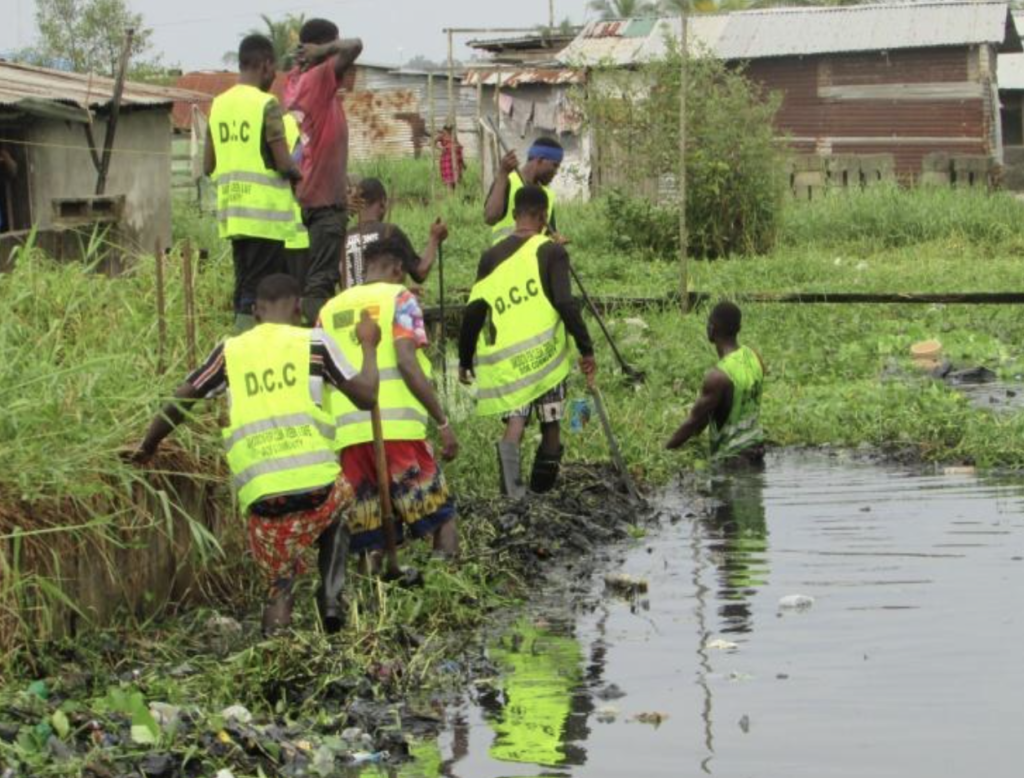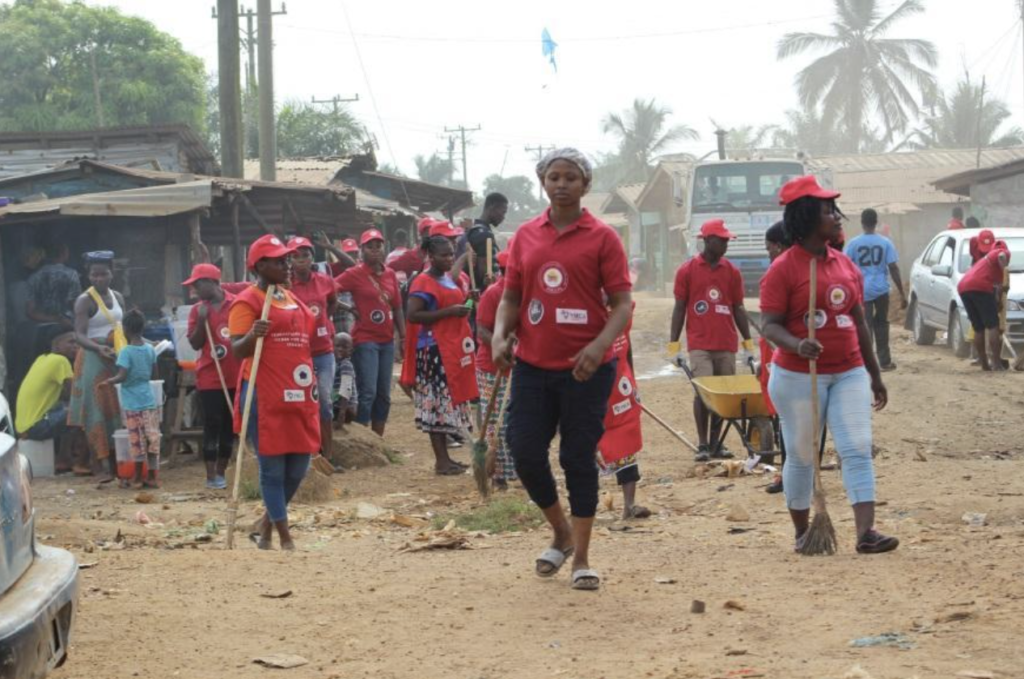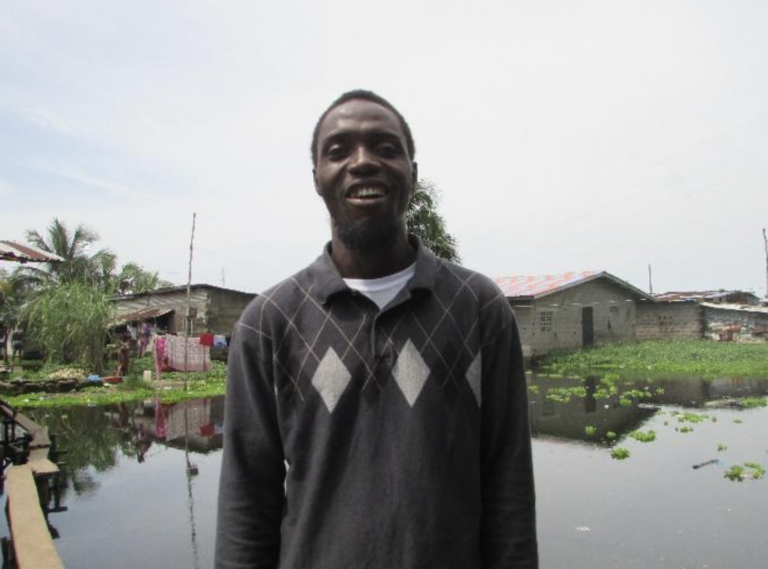Maintaining Critical Infrastructure to Hold the Community Together
by Emmanuel King Jr.

Juah Saydee mending a plank bridge in Doe Community
The Doe Community is on the banks of the Stockton creek and runs along the Somalia Drive. The community borders Clara Town and the Freeport community. It undergoes flooding with periodic fire outbreaks and occasional storms. These disasters regularly displace residents within the community. When disaster happens, transportation the community relies upon, such as bridges often collapse and further disadvantage community members from rebuilding life.
In informal settlements such as Doe, it is common for community members to take on roles to upkeep basic infrastructure since official city urban planning excludes informal settlements. Juah Saydee, a known handyman in the Doe Community moved to the informal settlement from Southwest Liberia to seek a better life for himself and his family. Already having a support system in the community, Juah connected with other people in his tribe and settled in Doe.
Juah repairs broken bridges made from planks. Since Doe is in a flood-prone area and undergoes heavy rain, these bridges need to be repaired yearly. Planks and sticks decay over time. The community calls these bridges “family bridges” because they connect families and the community relies on bridges to access their homes, schools, and workplaces, and keep the community together.


Savers from the Federation of Liberian Urban Poor Savers (FOLUPS)
Juah says assisting families and the community to repair bridges or paths is one way of helping his community. He has been involved in helping to mend these paths to homes for over three years, and he wants to ensure a safe passage for residents in the Doe Community.
Besides individuals who work to serve the Doe Community such as Juah, community-based organizations such as the Doe Community Corporation (DCC) take on the task of upkeeping the community. DCC has over 40 members, and every Saturday the group takes care of the community by cleaning the opening of waterways, clearing drainages, removing garbage, and cleaning shared facilities including toilets and bathrooms.

Washington Weah of Doe Community and a member of the DCC
The DCC does not only represent the interests of the Doe Community but also reflects a common need of residents in informal settlements. DCC works with other community groups, such as the Federation of Liberian Urban Poor (FOLUPS) which is a women-led savings group under the Slum Dwellers International (SDI). For instance, in 2021, DCC collaborated with FOLUPS to organize a thorough clean-up of the Doe Community. DCC also provides tools for FOLUPS to carry out clean-up exercises so they can organize clean-ups by themselves sustainably.
Washington Weah is a DCC member and a Doe Community resident. Washington describes the consequences of regular flooding, “every year, we suffer from flooding during the rainy season. Children find it difficult to reach their schools… ” Washington says his goal is to help DCC and the community carry out clean-up exercises so that people at least have access to their homes.